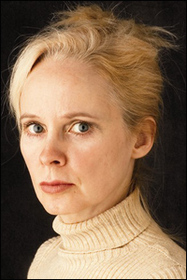In this rather depressing Haaretz article (found via the Practicing Writer), Super-Agent Binky Urban remains “optimistic” about the future of publishing but expresses concern about the fate of “mid-list authors”:
Urban: “So fewer books will be published, and those whom we call midlist writers will no longer get published. The major writers will keep publishing, debut books will always be published, and the ones in the middle will have a problem.”
So you won’t be able to nurture writers.
Urban: “That’s exactly the point. When I met Richard Ford for the first time, he already had published three novels, which had been very well-received critically and had sold 7,500 copies. When he came to me, he said he may never write another novel, which is not what an agent wants to hear. The next novel he wrote was ‘The Sportswriter,’ for which he won the Pulizer Prize. When I first met Cormac McCarthy, he had already written four novels, none of which had sold more than 2,500 copies. I moved him from Random House to Knopf, they did a fabulous job, and the next book he wrote was “All the Pretty Horses,” which sold about 300,000 copies in hardcover and millions in paperback. The question is really how you keep authors alive until they break through and garner a large readership. That’s what I stay awake at night and worry about.”
While I agree with and admire Urban’s concern, I’d say it brings up another even more pressing issue: What about authors who may never have a “large” readership? Urban may have found Richard Ford and other greats a mass audience, but must every author share this goal? Must we write bestselling books in order to merely survive–and if our debut novel doesn’t make big bucks, are we denied the chance to publish another? Of course every author wants to be read (and not just by a few other writers), but some truly wonderful books are never going to be appreciated by millions of readers–some naturally have a smaller audience. Many books we consider “classics” today were hardly bestsellers when they were published…they were considered too avant-garde or experimental, too boring or poetic, too weird. When I first got into publishing, there was this (now apparently outmoded) sense that a major publisher’s cash cows helped support its more literary, if often less market-friendly, books — like, for instance, any poetry whatsoever. Now is there really only room for the former?





